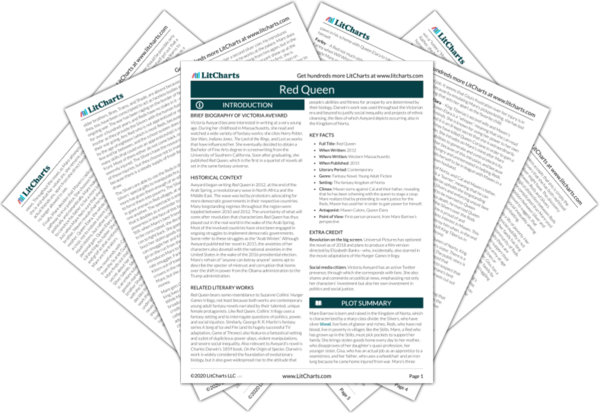Now that Mare has seen not only the luxury of a palace but also the squalor of a slum, she realizes that she is fighting against not just excessive wealth but also against the systemic maintenance of brutal poverty. She wants to even out the distribution of wealth so that the bridge into the capital gives not only wealthy Silvers but also Reds access to power. In order to do this, she must walk into a city that has been constructed as a war zone. The Silvers hide here, at the heart of the kingdom, from the atrocities that happen on the warfront. However, Mare realizes that the city represents the class warfare that is central to the kingdom.


